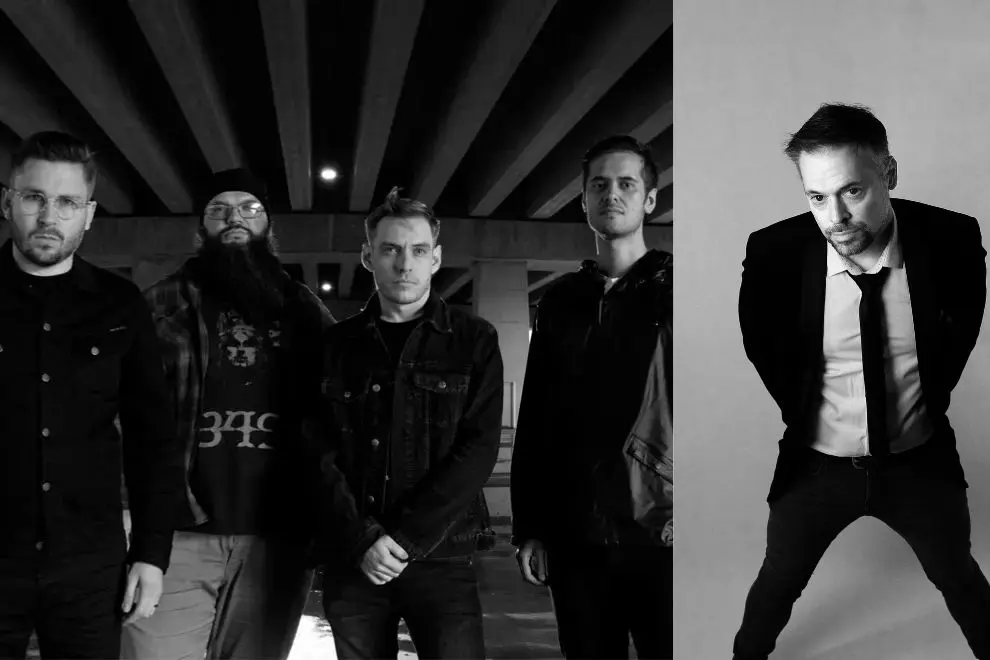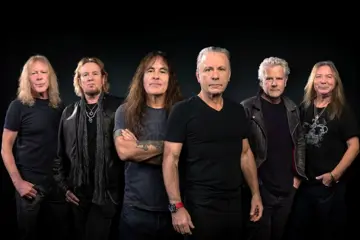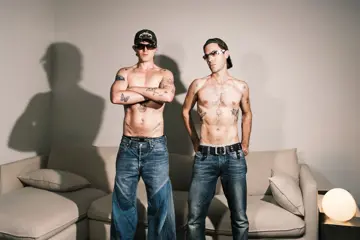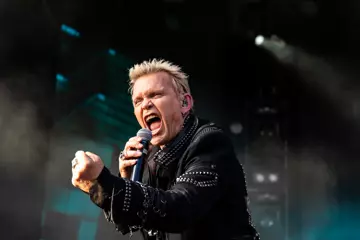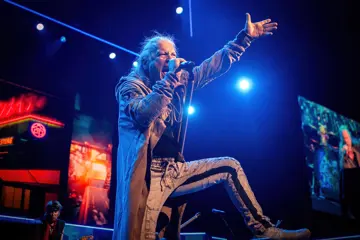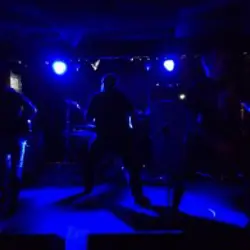 Hope Drone
Hope DroneA couple of years ago, I spoke to Josh Dibb, aka Deakin, the guitarist and keys player in US experimental pop outfit Animal Collective. During the conversation, Dibb told me that when he isn’t touring the world or recording instant indie classics, he works as a carpenter.
While I was initially surprised, it became clear that Dibb doesn’t regard juggling the two professions as a sign of failure. “When I’m not doing any carpentry, I miss it and when I’m not doing any music I start to feel really nutty,” Dibb said.
Nobody would argue that Animal Collective are not a successful band. They’ve toured the world several times, performed high profile slots at Glastonbury, Coachella and Big Day Out, appeared on late night television, and even been sampled by Beyoncé.
So, this got me thinking, what constitutes music industry success? And more to the point, is it possible to have a fulfilling music career and a day job? The answer is a resounding yes, but you don’t need huge streaming numbers or your face on a billboard to be deemed a success.
Don't miss a beat with our FREE daily newsletter
Success could be a five-star album review, going on tour supporting your heroes, or listing “musician” as the highest-earning profession on your tax return. But it also could be a moment of deep communion with an audience, or writing a song that leaves you feeling like a changed person.
Recently, I spoke to two musicians based in Brisbane/Magandjin who have carved out fulfilling music careers while also working full-time jobs.
Christopher Rowden is the vocalist and guitarist in black metal band Hope Drone. He’s also a lawyer, a husband, and a father of three. Hope Drone have released four albums over the last decade and a half. They’ve supported Deafheaven and Liturgy and toured internationally.
In 2016, following the release of their second album, Cloak Of Ash, Hope Drone toured Europe with their friends, German extreme metal band Downfall Of Gaia. The tour came at a perfect moment in Rowden’s life.
“Professionally, we had just won a case that had me burning the midnight oil for years,” he says. “Almost immediately after, I was on a plane to Portugal. So it felt like the perfectly-timed culmination of artistic and professional hard work.”
On the first night of the tour, Hope Drone played at Amplifest in the Portuguese city of Porto. Prurient, perhaps Rowden’s favourite artist of all time, performed immediately after them. “I was transfixed,” he says.
The rest of the tour lived up to this high standard. “The entire experience of touring and playing metal in Europe is so great that it made it very hard to come back to touring in Australia,” Rowden says.
Cloak Of Ash came out through prominent US heavy music label Relapse Records, another major milestone for Rowden and his bandmates. “I grew up listening to Relapse bands and it is one of very few labels I would want to be associated with,” Rowden says.
However, in practical terms, signing to Relapse wasn’t an enormously life-altering experience. “The reality of being an obscure black metal band from Brisbane on a label as large as Relapse is that you are the lowest priority,” Rowden says. “Notwithstanding, I am grateful to Relapse for taking a chance on a 77-minute double LP that opened with a 20-minute song!”
Rowden and his three bandmates, drummer Francis Kell, guitarist Karl Hartwig and bass player Aaron "Peege" Pickersgill, are an ambitious bunch – they wouldn’t be touring Europe or recording a 77-minute double album if that wasn’t the case. But Rowden has never expected Hope Drone to become his full-time job.
“Frankly, I am not even sure that would be possible,” he says. “There are only a small handful of bands playing black metal or adjacent music that can make a living.”
Rowden isn’t dismayed by this reality, as it allows him to preserve his artistic integrity. “I knew for as long as I remember that I wanted to be a lawyer,” he says, “and that gave me the privilege of having a profession that is inherently commercial, which allowed me to never have to compromise artistically.”
When Hope Drone released their third album, Void Lustre, in 2019, they posted a message to social media about the role music plays in their lives. “We do this band as a mental release and catharsis for ourselves,” they wrote. Rowden confirms this is still the case.
“My job can be incredibly stressful,” he says. “I have always felt like I had the resilience to handle it, but I am sure a big part of that has been having the outlet of getting on stage, turning on five delay/reverb pedals and screaming into a microphone.”
Will Lebihan has been writing songs and playing in bands since the mid-'90s. His first major project, the classic rock-influenced Pharaoh’s Playground, supported the likes of Skunkhour and landed a song on the triple j compilation, Thirteen: The Three Hours Of Power, in 1997.
Pharaoh’s Playground used to rehearse several nights a week in Fortitude Valley’s infamous Target building, rubbing shoulders with Powderfinger and Ben Ely’s Pangaea. “It was a real community under that roof,” Lebihan says, “and you never knew what you were going to walk into.”
More recently, Lebihan has released a handful of albums with the Americana band Good Will Remedy, which includes his old Pharoah’s Playground bandmate, drummer Robert Penman. They’ve played at Gympie Muster and Lasso Country Music Festival and supported Casey Barnes and The Black Sorrows.
Lebihan also holds down a full-time job in operations, sales and marketing management. It can feel like living two separate lives, he says, but he finds fulfillment in both. “It’s an interesting balance but one I have such a passion for.”
Lebihan’s definition of success has evolved over the last 30 years. While it once connoted fame, fortune, and a place in music history, these days he’s chuffed if he writes a song he loves and wants to keep listening to it.
“Success to me is having a radio station or part of the industry show support for something I’ve released,” Lebihan says. “It’s having a venue approach me for a show more than once; having the crowd singing my songs at shows; getting asked to play larger festivals and supports and being asked to come back and do it again.”
It’s now thirty years since triple j added Pharoah’s Playground’s Forked Tongue to rotation, but Lebihan isn’t running out of enthusiasm. He’s just launched a new project, Will Remedy & The Influencers, and the band’s debut single Initials marks a return to his rockier roots.
“It has really allowed me to open up from a songwriting perspective,” he says. “That’s been a real buzz to get off the ground.”
Both Rowden and Lebihan are lifers, people whose connection to music goes right to their very core. “I still practice most nights and keep trying to develop, co-write and work with other artists and grab inspiration in any form,” Lebihan says.
Rowden echoes this sentiment, underlining how the music he makes is an extension of himself. “I think you're attracted to music like what Hope Drone plays not because you aspire to be a full-time musician, but rather because there is something you need to say, something that needs to be released.”
This piece of content has been assisted by the Australian Government through Music Australia and Creative Australia, its arts funding and advisory body


